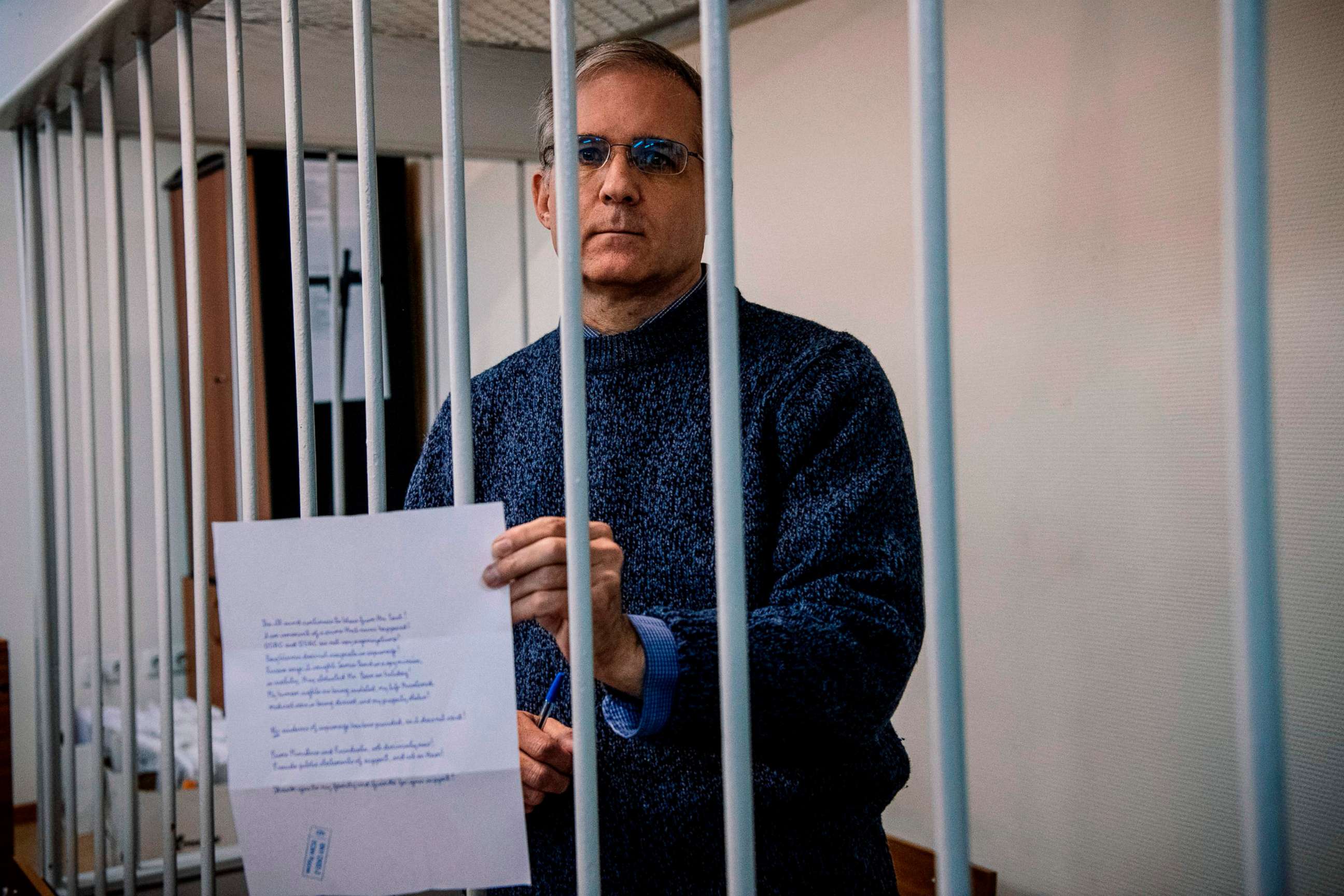Russian prosecutors seek 18-year sentence for ex-Marine Whelan
Whelan has been held since 2018 on spying charges he denies.
The trial of Paul Whelan, the former United States Marine held in Russia on spying charges, wrapped up in a Moscow court on Monday, with lawyers making their closing arguments and Russian prosecutors asking the court to sentence Whelan to 18 years in a Russian prison colony — close to the maximum possible sentence for espionage.
The judge is expected to give a verdict at a June 15 hearing.
“The prosecutor asked for a very tough punishment, 18 years in a high-security penitentiary,” Whelan’s Russian lawyer, Vladimir Zherebenkov, said after the hearing on Monday.
Whelan, a security director for the American auto parts supplier BorgWarner, was arrested in his hotel room in late December 2018 by Russia’s FSB domestic intelligence service while he was visiting Moscow for a friend’s wedding.
Since then he has been held in the city’s Lefortovo prison, which houses suspected spies and high-profile prisoners.
Whelan’s family and his lawyers have insisted that he is not a spy and have accused Russia of framing the 50-year-old in order to use him as a political bargaining chip.
Whelan’s case is classed as secret and Russian authorities have never publicly described what he is accused of. The trial began in mid-April and has been held behind closed doors. The coronavirus lockdown has prevented journalists from even being present at the court building.
But the outlines of the case have emerged from Whelan’s lawyers and through leaks to the Russian media. According to them, Whelan is accused of receiving classified materials from a longtime Russian friend on behalf of U.S. intelligence.
Whelan’s lawyers have said in reality those charges are based around a crude frame up, set up by Whelan’s friend who was working with the FSB.
The friend, they said, brought a memory card to Whelan’s hotel room in December 2018 visit which Whelan had believed would contain photos of a trip the two had taken the previous winter to a monastery town near Moscow.
Instead, unknown to Whelan, it contained the classified materials, and minutes after it was given to him FSB agents burst in and detained him.
In the days before the sting, the friend had unexpectedly picked Whelan up at the airport when he arrived, Zherebenkov said, and had plied him with whiskey. He had secretly recorded Whelan, while trying to lead him to say incriminating things, the lawyer said.

The lawyers have not named the friend due to the trial’s secrecy rules, saying only that he works in the Russian security services. But Whelan’s family members have named him as Ilya Yatsenko, someone Whelan had known for 10 years. Last week, the Russian newspaper Kommersant reported he was a major in the FSB’s Department ‘K’, the powerful unit responsible for combating economic crimes.
Yatsenko has testified twice in court. Last week, Whelan testified that he believes his friend was motivated to betray him in part because he owed Whelan over $1,000 for two iPhones he bought for him, Zherebenkov said.
Whelan, who left the Marines on a bad-conduct discharge in 2007, is a self-described Russophile, who had traveled for years to Russia on vacations and had made many friends there, according to his family. In addition to the U.S., he also holds Irish, British and Canadian citizenship.
In his closing statement on Monday, Whelan told the judge he greatly respected Russian culture and had never conducted any spying activity, Zherebenkov said.
The United States in recent months has repeatedly called on Russia to release Whelan, saying it has never provided any evidence to support his detention.
Former U.S. intelligence officials have said Whelan does not fit the profile of an American spy and have said his case resembles that of classic KGB stings during the Cold War.
There has been speculation that Russia may have seized Whelan with the hope of exchanging him for Russians imprisoned in the U.S. on criminal convictions. Last year, Russian President Vladimir Putin publicly denied Russia engaged in hostage-taking but then noted that any exchange could only be possible once Whelan was convicted.
Whelan’s other Russian lawyer, Olga Karlova, told ABC News last week that Whelan hoped the U.S. would seek to rapidly trade him after his conviction. But she said there was no indication that would happen.




